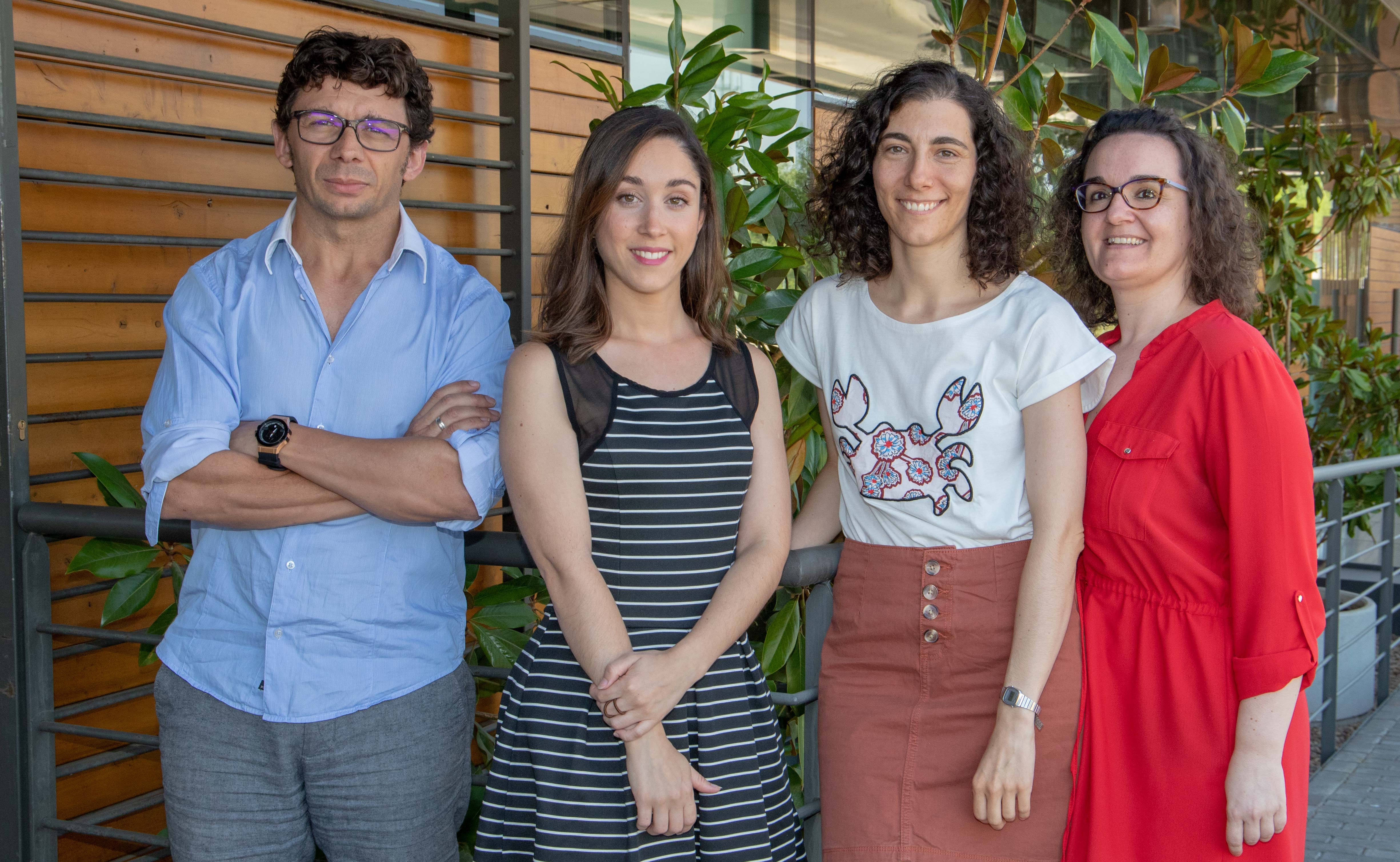Research Program. Precision Nutrition and Aging
Hepatic Regenerative Medicine Group
Group leader: Dr. Manuel Alejandro Fernandez Rojo
Objectives: The research conducted in the Hepatic Regenerative Medicine Group aims to restore the regenerative capacity of the liver in pathophysiological conditions such diabetes and chronic liver diseases. Within this aim we address non-invasive interventions to improve the treatment of chronic liver diseases and liver cancer by formulating novel diet-modifications. This includes nutritional approaches that promotes or represses therapeutic and deleterious proliferation of liver cells in cases of livingdonor liver transplantation or after surgical removal of liver tumors, respectively. Our goal will be achieved using molecular, metabolism and cell biology examination on in vitro and in vivo experimental models of human liver diseases.
Dr. Manuel Alejandro Fernández Rojo
Group leader of the Hepatic Regenerative Medicine Group
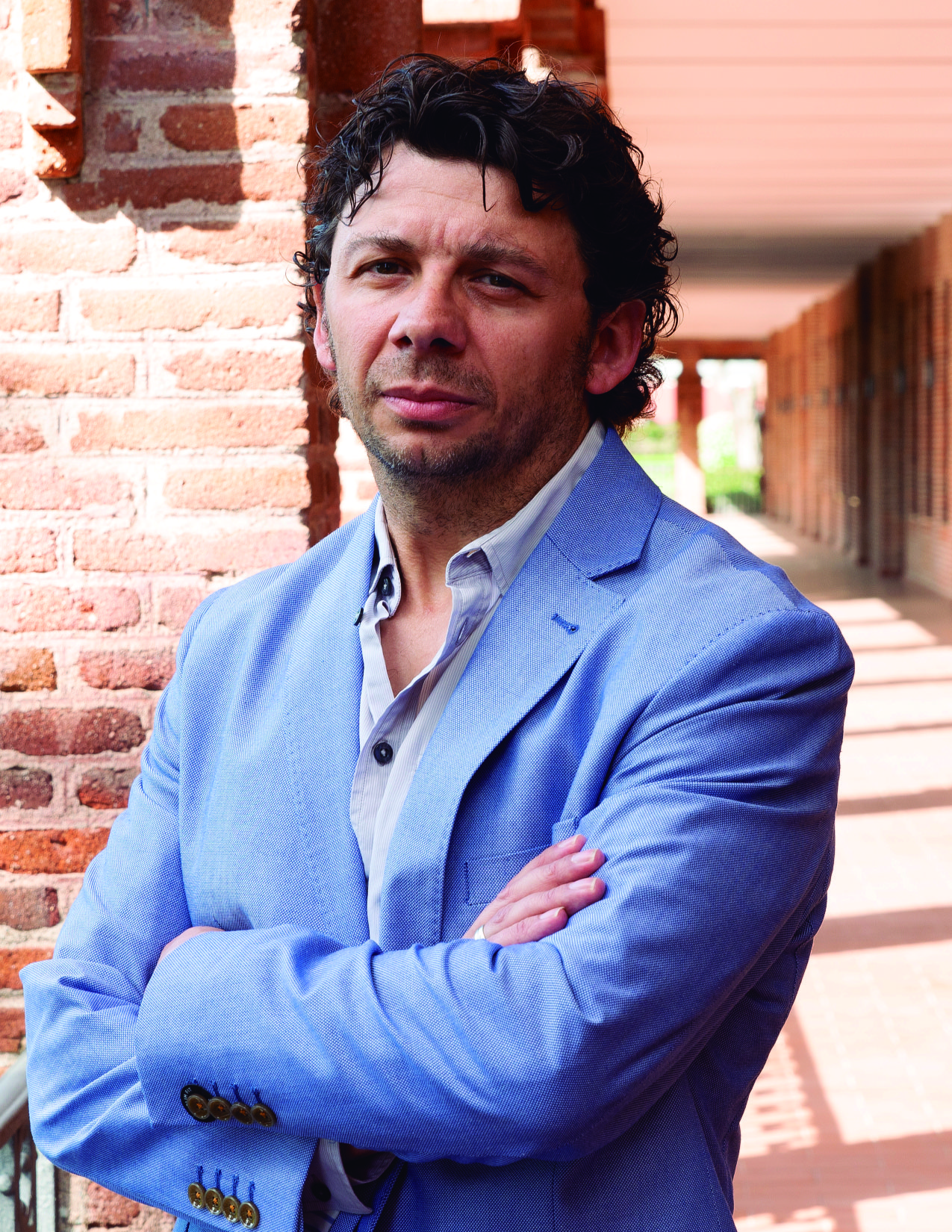 Dr. Manuel A. Fernandez Rojo joined IMDEA-Food Institute in April 2017 as a “TALENTO” Fellow within the recruitment program for outstanding researchers by the Madrid Region Government. Since then, Manuel is leading the Hepatic Regenerative Medicine Group in order to design novel diet-interventions, compounds and molecular mechanism that either promote the regenerative capacity of the liver or prevent the progression of hepatic carcinogenesis Manuel obtained his degree in Biology and his PhD in Cell Biology in the IDIBAPS Institute/Faculty of Medicine at the University of Barcelona. Afterwards, he moved to Australia to continue his work in Caveolins, metabolism, liver regeneration, insulin resistance and hepatocarcinogenesis in Rob Parton’s lab in the Institute for Molecular Bioscience (The University of Queensland) and in Prof. Tiganis’ laboratory (Monash University, Melbourne). Then, he returned to Brisbane and worked in the Hepatic Fibrosis group leaded by Prof. Grant Ramm at the QIMR Berghofer exploring the involvement of the hepatic stellate cells on liver inflammation during the progression of chronic liver diseases. Manuel’s outstanding research has been recognized with the Margalef Award, the Spanish Government postdoctoral fellowship, several grants from very competitive Australia funding bodies and he is co-author in a patent. He has also built a large network of Australian, European and American collaborators that allows him to perform multidisciplinary projects to answer fundamental questions underlying the development of novel
Dr. Manuel A. Fernandez Rojo joined IMDEA-Food Institute in April 2017 as a “TALENTO” Fellow within the recruitment program for outstanding researchers by the Madrid Region Government. Since then, Manuel is leading the Hepatic Regenerative Medicine Group in order to design novel diet-interventions, compounds and molecular mechanism that either promote the regenerative capacity of the liver or prevent the progression of hepatic carcinogenesis Manuel obtained his degree in Biology and his PhD in Cell Biology in the IDIBAPS Institute/Faculty of Medicine at the University of Barcelona. Afterwards, he moved to Australia to continue his work in Caveolins, metabolism, liver regeneration, insulin resistance and hepatocarcinogenesis in Rob Parton’s lab in the Institute for Molecular Bioscience (The University of Queensland) and in Prof. Tiganis’ laboratory (Monash University, Melbourne). Then, he returned to Brisbane and worked in the Hepatic Fibrosis group leaded by Prof. Grant Ramm at the QIMR Berghofer exploring the involvement of the hepatic stellate cells on liver inflammation during the progression of chronic liver diseases. Manuel’s outstanding research has been recognized with the Margalef Award, the Spanish Government postdoctoral fellowship, several grants from very competitive Australia funding bodies and he is co-author in a patent. He has also built a large network of Australian, European and American collaborators that allows him to perform multidisciplinary projects to answer fundamental questions underlying the development of novel
conceptual paradigms in liver research.
Mail: manuel.fernandez@imdea.org
Tlf. + 34 91 727 81 00 Ext: 208
Members
Dr. María Ikonomopoulou
Senior researcher and Head of Research Line in Translational Venomics
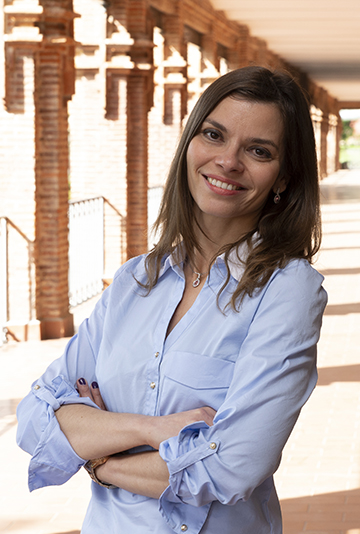 Dr. Ikonomopoulou is a Senior Research TALENTO Fellow (Program of excellence in research by the Madrid Government), who returned to Europe in 2017 as a “Marie Curie” AMAROUT Fellow to lead the “Translational Venomics” Project. After being awarded her PhD in Biomedical Sciences at the University of Queensland in Australia, Maria found her research niche in “Venomics” and drug discovery. Her primary focus lies on the identification, characterization & development of anticancer, anti- aging, senolytic and immunomodulatory bioactive compounds. For this, Maria utilizes cell and molecular biology, mouse and zebrafish experimental models, medicinal chemistry, nuclear magnetic resonance spectroscopy and structure-activity relationship to reveal and modify the amino acid domains and the structural conformations responsible for the therapeutic activity of venom compounds. Maria is working to build a large and diverse animal venom biobank for therapeutic purposes. Maria ́s innovative research has attracted the Biopharma industry, national and international collabora- tions and received international media attention.
Dr. Ikonomopoulou is a Senior Research TALENTO Fellow (Program of excellence in research by the Madrid Government), who returned to Europe in 2017 as a “Marie Curie” AMAROUT Fellow to lead the “Translational Venomics” Project. After being awarded her PhD in Biomedical Sciences at the University of Queensland in Australia, Maria found her research niche in “Venomics” and drug discovery. Her primary focus lies on the identification, characterization & development of anticancer, anti- aging, senolytic and immunomodulatory bioactive compounds. For this, Maria utilizes cell and molecular biology, mouse and zebrafish experimental models, medicinal chemistry, nuclear magnetic resonance spectroscopy and structure-activity relationship to reveal and modify the amino acid domains and the structural conformations responsible for the therapeutic activity of venom compounds. Maria is working to build a large and diverse animal venom biobank for therapeutic purposes. Maria ́s innovative research has attracted the Biopharma industry, national and international collabora- tions and received international media attention.
Email: maria.ikonomopoulou@imdea.org
Phone: +34 91 727 81 00
Dr. Maite Martínez Uña
Postdoctoral researcher
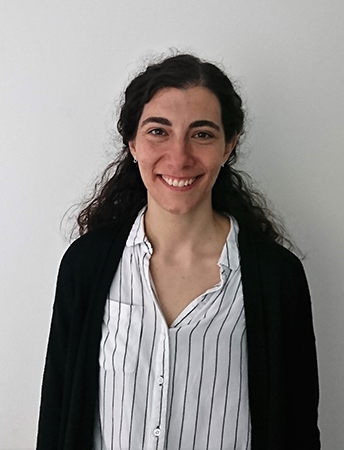 In 2017 I obtained my PhD in Molecular Biology and Biomedicine with Cum Laude and international honours at the University of the Basque Country (UPV/EHU). Previously I gained my Pharmacy degree at the University of Salamanca and I studied Biochemistry at the University of the Basque Country (UPV/EHU). Further, I have a Specialisation degree in Science Management and Knowledge Transference by the Polytechnic University of Valencia/INGENIO (CSIC-UPV). For what it is related to my research interests, my thesis was about how S-Adenosylmethionine alters lipid metabolism in the liver and very-lowdensity lipoproteins (VLDL) clearance. Besides, during my training I spent a few months at the University of Cambridge where I worked characterising the metabolic impact of PGC1 absence in the liver and the adipose tissue. In May 2018 I will join Manuel Fernández Rojo group at IMDEA Food as a postdoc.
In 2017 I obtained my PhD in Molecular Biology and Biomedicine with Cum Laude and international honours at the University of the Basque Country (UPV/EHU). Previously I gained my Pharmacy degree at the University of Salamanca and I studied Biochemistry at the University of the Basque Country (UPV/EHU). Further, I have a Specialisation degree in Science Management and Knowledge Transference by the Polytechnic University of Valencia/INGENIO (CSIC-UPV). For what it is related to my research interests, my thesis was about how S-Adenosylmethionine alters lipid metabolism in the liver and very-lowdensity lipoproteins (VLDL) clearance. Besides, during my training I spent a few months at the University of Cambridge where I worked characterising the metabolic impact of PGC1 absence in the liver and the adipose tissue. In May 2018 I will join Manuel Fernández Rojo group at IMDEA Food as a postdoc.
Email: teresa.martinez@imdea.org
Phone: +34 91 727 81 00
Yaiza López Mancheño
Predoctoral researcher
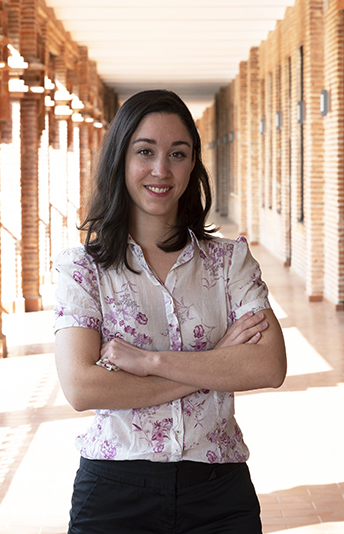 Yaiza López Mancheño has a degree in Biology with the Biosanitary Biotechnolog itinerary from the University of Alicante (2015). During 2015 and 2017 she completed a Master’s Degree in Bioengineering at the School of Engineering of the Chemical Institute of Sarriá (IQS) belonging to the Ramón Llull University in Barcelona. During the second year of her Master, she acquired the know how in the use of the CRISPRCas9 system as a genomic editing tool, being responsible of a research project focused on the identification of the gene responsible of a rare genetic disease through the generation of animal models with the cited CRISPR-Cas9 technology, carried out at the National Center for Biotechnology (CNB-CSIC) in Madrid. In March 2018 she joined the group of Hepatic Regenerative Medicine in IMDEA Food to develop her Doctoral Thesis in this fi eld.
Yaiza López Mancheño has a degree in Biology with the Biosanitary Biotechnolog itinerary from the University of Alicante (2015). During 2015 and 2017 she completed a Master’s Degree in Bioengineering at the School of Engineering of the Chemical Institute of Sarriá (IQS) belonging to the Ramón Llull University in Barcelona. During the second year of her Master, she acquired the know how in the use of the CRISPRCas9 system as a genomic editing tool, being responsible of a research project focused on the identification of the gene responsible of a rare genetic disease through the generation of animal models with the cited CRISPR-Cas9 technology, carried out at the National Center for Biotechnology (CNB-CSIC) in Madrid. In March 2018 she joined the group of Hepatic Regenerative Medicine in IMDEA Food to develop her Doctoral Thesis in this fi eld.
Email: yaiza.lopez@imdea.org
Phone: +34 91 727 81 00
Luis Herrera
Postdoctoral researcher in Hepatic Regenerative Medicine-HRM Group
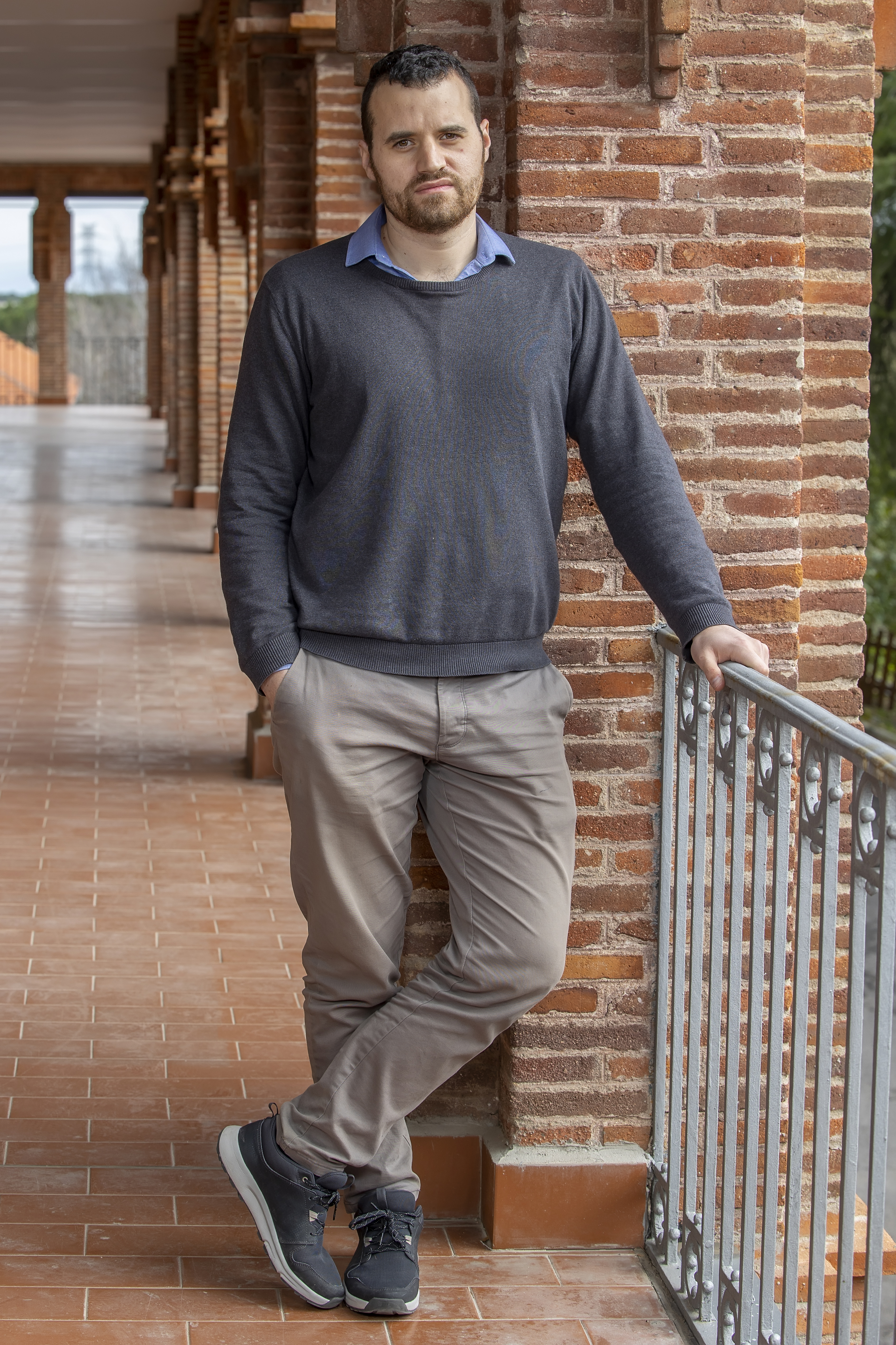
”Luis Vte. Herrera-Marcos studied Veterinary at the university of Zaragoza (2013). Then he did a Master (2014) and a PhD (2019) in the field of biochemistry and molecular biology in Dr. Osada’s laboratory During that time, he was studying the molecular mechanism of hepatic steatosis, and the influence of different compounds of the Mediterranean diet in this disease. Since then, his research has been focused on how diet macro- and micro- composition alter liver metabolism and diseases development. He joined the Hepatic Regenerative Medicine group at IMDEA Food Institute in June 2020 where he’s working as a postdoctoral researcher studying diet influence on liver regeneration and cholangiocarcinoma.”
Email: luis.herrera@imdea.org
Phone: +34 91 727 81 00
Ana Vela Sebastián
Research Assistant
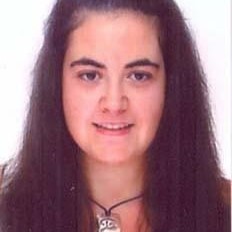
”She was graduated in Biotechnology in 2017/2018 at University of Zaragoza, where she also fullfilled her educational formation with a Master’s degree in Cellular and Molecular Biology in 2018/19. Afterwards, she was working at the same University of Zaragoza as a researcher along one and a half year within “Biogenesis and mitochondrial pathology” group. Incorporation at IMDEA Food Institute in April 2021 where she is working as a Research Assistant in the Translational Venomics group.
Email: ana.vela@imdea.org
Jose Luis López
Lab Technician
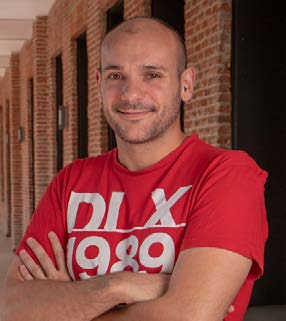 Jose Luis Lopez is a highly skilled technician, with more than 7 years of experience in the management of mouse colonies and a wide range of experimental techniques in mouse models. He has worked in the Comparative Medicine Unit at the Spanish National Cardiovascular Research Center - CNIC, where he gained expertise in mouse colony databases. Currently, Jose Luis is the person in charge of mouse experiments of the Metabolic Syndrome Group at IMDEA Food, coordinating the mouse colonies housed in different animal facilities (CNB, CNIO, UAM), performing the most specific experiments and setting up different animal techniques. In addition, Jose Luis also supports different research lines using several molecular biology techniques, such as cell culture, confocal microscopy or q-PCR.
Jose Luis Lopez is a highly skilled technician, with more than 7 years of experience in the management of mouse colonies and a wide range of experimental techniques in mouse models. He has worked in the Comparative Medicine Unit at the Spanish National Cardiovascular Research Center - CNIC, where he gained expertise in mouse colony databases. Currently, Jose Luis is the person in charge of mouse experiments of the Metabolic Syndrome Group at IMDEA Food, coordinating the mouse colonies housed in different animal facilities (CNB, CNIO, UAM), performing the most specific experiments and setting up different animal techniques. In addition, Jose Luis also supports different research lines using several molecular biology techniques, such as cell culture, confocal microscopy or q-PCR.
Email: joseluis.lopez@imdea.org
Phone: +34 91 727 81 00
| most relevant publications |
|
| main research grants |
• Talento Program Grant, Madrid Gov (2020-5A_BIO-19724), 2021-2022 ___________ • Garantia Juvenil funding-Postdoc researchers, Gov. of the Comunidad de Madrid PD2019/019_PEJD-2019-POST/BMD-14722, 2019 ___________ • Talento Program Grant, Madrid Gov. (T1-BIO-1854), 2017-2021 ___________ • NHMRC Grant (APP1124026), Australia, (As Co-Investigator B), 2017-2020 ___________ • NHMRC Grant (APP1142394), Australia, (As associated investigator), 2018-2020 |
